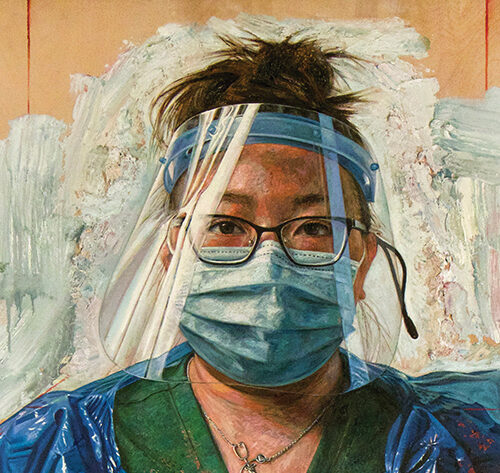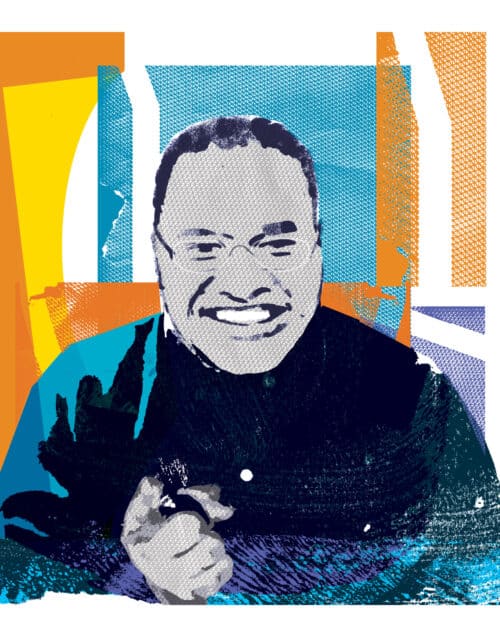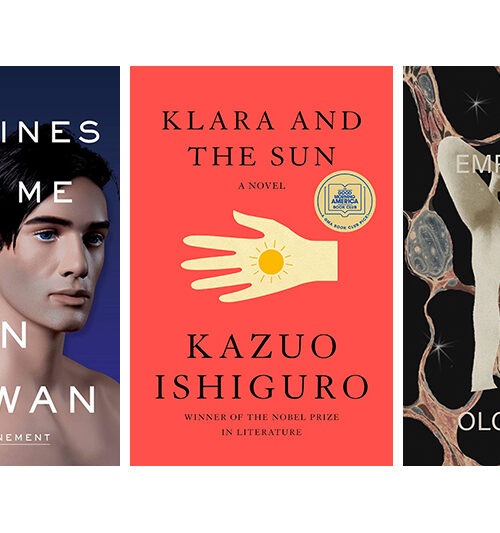The Human in the Node
Despite our best efforts, complex sociotechnical phenomena aren’t amenable to technocratic, top-down solutions. There are always the humans in the nodes of the network: people doing passionate, weird, creative, and impulsive things that defy prediction and control—but which also make possible our ongoing efforts to improve the world. In the Spring 2023 Issues, contributors look at human experience and agency to explore how to navigate polluted ecosystems, how tacit knowledge is key to a safe and productive bioeconomy, how disciplines are nurtured and defined by the competing interests of academic leaders, and much more.
Editor's Journal
Finding the Human in the Node
Read MoreComplex sociotechnical phenomena aren’t amenable to technocratic, top-down solutions. There are always the humans in the nodes of the network.
Forum
The Limits of Science Communication?
Read MoreManaging the Risks of International Collaboration
Read MoreBoundary-Pushing Citizen Engagement
Read MoreMaterially Different
Read MoreCaring for People With Brain Injuries
Read MoreThe Social Side of Evidence-Based Policy
Read MoreExport Control as National Security Policy
Read MoreLessons From the Ukraine-Russia War
Read MoreSupport Caregiving Scientists
Read More

Gallery
Visions of Nursing
Perspectives
When Our Medical Students Learn Anatomy, They See a Person, Not a Specimen
Read MoreThe Silent Mentors Program has a profound effect on medical education: it enhances the humanity of clinicians and those they serve.
A Next-Generation Strategy for American Science
Read MoreThe US House of Representatives Committee on Space, Science, and Technology looks beyond the challenges facing America today to pave the way for the nation’s long-term development. Chairman Frank Lucas outlines his priorities for strengthening US science.
Enhancing Trust in Science and Democracy in an Age of Misinformation
Read MoreScientists and elected leaders must join forces to inform the public’s discretion through improved communication and education.

Interview
“If We Are Simply Creating Techies Who Can Only Work With the Technology, We’re in Big Trouble.”
Poetry
My God, It’s Full of Stars (Part 5)
Read MoreIn her poem “My God, It’s Full of Stars (Part 5),” Tracy K. Smith remembers her father, a scientist who worked on the Hubble Telescope.
Real Numbers
How Science Gets Drawn Into Global Conspiracy Narratives
Read MoreUnderstanding how scientific concepts become associated with conspiracy theories online can help determine which countermeasures might be effective.
Features
Generating Meaningful Energy Systems Models for Africa
Read MoreBringing expertise, data, and model development “home” to African countries is interrelated and mutually reinforcing with achieving electrification, development, and climate goals on the continent.
The Transformation of American Nursing
Read MoreIn the decades after World War II, nurse educators built a science of nursing. Their work underpins the profession as it is practiced today—and offers insights for other disciplines into how knowledge is created, valued, and used.
Biosafety Needs to Redefine Itself as a Science
Read MoreAn expansion of today’s static definition of biosafety to include research for mitigating risk will advance both science and public safety.
Racing to Be First to Be Second: A Coordinated Regulatory Framework for the Bioeconomy
Read MoreA bioeconomy that delivers environmental, economic, and social benefits requires a twenty-first-century regulatory framework.
Rumors Have Rules
Read MoreDecades-old research about how and why people share rumors is even more relevant in a world with social media.
Viral Suppression
Read MoreWhen Facebook’s fact-checkers slapped a “missing context” label on a venerable medical journal’s article about breached vaccine trial protocols, they set off a very twenty-first-century fight about who should play what role in scientific communication.
In Finland, We Make Each Schoolchild a Scientist
Read MoreTeaching research skills and encouraging inquiry from the earliest ages can build social resilience to misleading information.
Misunderstanding Misinformation
Read MoreAn obsession with gauging accuracy of individual posts is misguided. To strengthen information ecosystems, focus on narratives and why people share what they do.
How to Keep Emerging Research Institutions From Slipping Through the Cracks
Read MoreThe CHIPS and Science Act advances equity by codifying an underserved group, but more must be done to correct the effects of skewed research funding.
Finding the “I” in Interdisciplinarity
Read MoreWhen I was assigned to a federally funded project to revolutionize engineering education at Virginia Tech, I thought being an effective scholar meant shunning my unconventional background. Instead, I had to embrace it.
The Making of a Biosafety Officer
Read MoreUnderstanding how biosafety professionals generate knowledge on the job can help train skilled personnel and craft rules to keep communities safe.
The Precarious Balance Between Research Openness and Security
Read MoreAmid increasing competition and conflict with countries such as China, calls to restrict international scientific cooperation overlook benefits to the United States.

